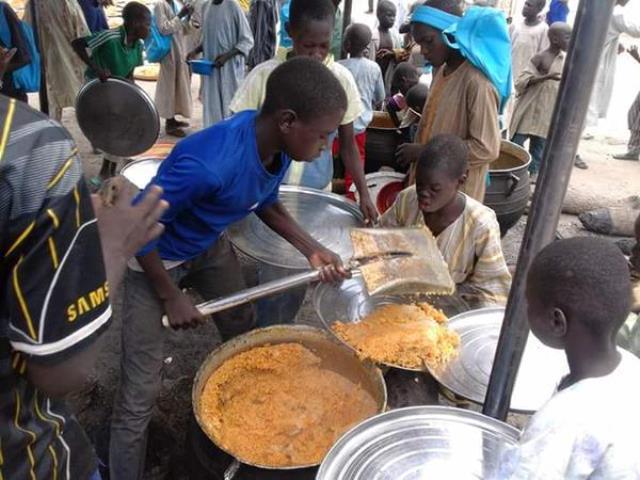
By STEFAN JUNGCURT
The falling cost of solar power has made this form of renewable energy an increasingly attractive option to reduce greenhouse gas (GHG) emissions and increase access to affordable, clean energy in developing countries through energy finance.
This update covers recent investments in solar power generation and other renewables against the background of an accelerating decline in global coal production and consumption.
The Statistical Review of World Energy, published by the global energy provider BP, found that in 2016 global coal production decreased by 6.2%, the largest yearly decline on record. Coal consumption fell by 1.7% and the share of coal in primary energy consumption fell to 28.1%, the lowest since 2004.
Overall, the Review detected a significant shift in the global fuel mix away from coal towards lower carbon fuels. [BP Statistical Review of World Energy]
Financing for renewable energy generation is an important part of the transition to a low-carbon future. Over the past month, various international financial institutions and development banks have approved support for the installation of approximately 1.7 GW of solar generation capacity, most of which will be in the form of utility-scale power plants.
Two new solar projects were announced in Africa. The International Finance Corporation (IFC) and the Climate Investment Funds (CIF) will co-finance the first utility-scale solar power plant in Mozambique.
The 40.5MW photovoltaic plant will be built in Mocuba, Mozambique, in collaboration between the Norwegian power producer Scatec Solar, Norway’s development finance agency Norfund, and Mozambique’s electricity utility Electricidade de Moçambique (EdM). IFC and CFI will each contribute US$19 million in grants and a syndicated loan of US$17 million.
The project is expected to increase the resilience of Mozambique’s electricity sector and improve access to electricity in rural areas.
Egypt, another country with high potential for solar energy, will benefit from a US$500 million financing framework for renewable energy provided by the European Bank for Reconstruction and Development (EBRD).
The financing will be available to support the development of renewable energy projects by the private sector under the Egyptian feed-in tariff policy, which aims to stimulate the construction of 4GW of wind and solar capacity.
Together with the financing framework, the EBRD board also approved 13 solar power projects to be financed by the framework with three additional projects slated for approval in July. Once completed, the 16 projects will deliver 750MW of generation capacity and an estimated 900,000 tonnes of CO2eq in emissions reductions per year.
The EBRD notes that the approval of the financing framework constitutes a major step in the execution of EBRD’s Green Economy Transition Approach. Egypt is the sixth country to receive EBRD financing for solar power installations after Cyprus, Jordan, Romania, Ukraine, and Kazakhstan.
In other EBRD news, the Bank announced investments in two solar projects in Kazakhstan: Burnoye-2, a 50 MW expansion the country’s first utility-scale solar power plant; and the creation of a 50MW solar park in Baikonur. EBRD and the Government of Kazakhstan also signed a Memorandum of Understanding (MOU) that will allow a wider rage of investors to engage in the country’s renewable energy market under the EBRD’s dedicated framework.
Using a different financing vehicle, the Asian Development Bank (ADB) has issued a green offshore, Indian Rupee-linked bond to leverage financing for wind and solar projects in six Indian states. The INR3 billion (US$47 million) bond will be offered to investors in Asia, Europe and the Americas at a 6% interest rate with a 3.75-year maturity.
The proceeds will be used to co-finance the ReNew Clean Energy Project under ADBs Leading Asia’s Private Sector Infrastructure Fund (LEAP) backed by the Japan International Cooperation Agency (JICA). The project aims to develop 709MW of solar and wind power plants in the states of Andhra Pradesh, Gujarat, Jharkhand, Karnataka, Madhya Pradesh and Telangana.
Coinciding with the ADB’s bond offering, the State Bank of India (SBI) has announced financing for 100MW of solar rooftop projects under the World Bank’s programme for on-lending to viable Grid-Connected Rooftop Solar (GRPV) projects undertaken by private developers.
Under the programme, SBI receives a US$625 million loan from the World Bank’s Clean Technology Fund (CTF) to finance the installation of at least 600MW solar rooftop capacity. The World Bank also supports capacity building to expand the rooftop solar market in India through low-cost financing.
In addition, a grant through the Global Environment Facility (GEF) supports strengthening the investment climate, capacity development and risk mitigation for the main stakeholders in involved in the expansion of GRPV.
STEFAN JUNGCURT, is a thematic Expert on Biodiversity (Germany)











